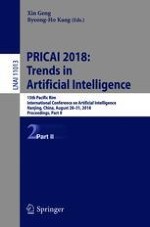2018 | OriginalPaper | Buchkapitel
Scalable Machine Learning Techniques for Highly Imbalanced Credit Card Fraud Detection: A Comparative Study
verfasst von : Rafiq Ahmed Mohammed, Kok-Wai Wong, Mohd Fairuz Shiratuddin, Xuequn Wang
Erschienen in: PRICAI 2018: Trends in Artificial Intelligence
Aktivieren Sie unsere intelligente Suche, um passende Fachinhalte oder Patente zu finden.
Wählen Sie Textabschnitte aus um mit Künstlicher Intelligenz passenden Patente zu finden. powered by
Markieren Sie Textabschnitte, um KI-gestützt weitere passende Inhalte zu finden. powered by
